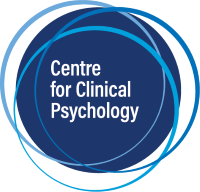The Western Infant and Perinatal Mental Health Professionals Network (MHPN) recently welcomed Dr Karli Treyvaud, who presented her research which has explored the outcomes for families and infants following premature birth. We were fortunate to be able to run the meeting just prior to Victoria’s fourth lockdown.
On the eve of Infant Mental Health Week, it is topical to summarise some of Karli’s research findings:
- Parents of very preterm (VPT) infants (<32 weeks gestation) experience higher rates of psychological distress than parents with healthy infants born at term.
- This is the case for MOTHERS AND FATHERS. (Too often the mental health of fathers, or the same-sex parent is overlooked).
- In the period after birth, it has been a consistent finding that parents of VPT infants experience higher levels of depression, anxiety, and posttraumatic stress symptoms (as assessed using typical screening measures common to mental health research studies). Some studies show rates of anxiety and depression to be as high as 40-50% of mothers and fathers.
- Parental mental health difficulties tend to decline over time, but remain above expected levels (eg, at 6 months after birth).
- Longitudinal research has found parental mental health difficulties extending from infancy into childhood (assessed a 6 months, 2 years, 7 years, and 13 years) for some parents.
- Infants and children born VPT are more likely to experience neurodevelopmental and social-emotional difficulties.
- The regulation difficulties often present within infants and children born VPT, can interact with the mental health difficulties experienced by parents, compounding the distress within the entire family.
- Optimal outcomes for these infants (and children) needs to take parental distress into consideration, and this necessitates a wholistic view of treatment.
In short, mental health interventions are important for parents and infants. Interventions ought to include mental health and parenting support for mothers and fathers (or the other same-sex parent), multidisciplinary support for infants and children, and a focus upon strengthening the parent-infant relationship.
At the Centre for Clinical Psychology we have a focus on perinatal and infant mental health, in treatment and supervision.
References:
Pace, C., Anderson, P., Lee, K.L., Spittle, A. & Treyvaud, K. (2020) Posttraumatic Stress Symptoms in Mothers and Fathers of Very Preterm Infants Over the First 2 Years, Journal of Developmental & Behavioral Pediatrics: Volume 41(8) 612-618
Pace CC, Spittle AJ, Molesworth CM, et al. (2016). Evolution of Depression and Anxiety Symptoms in Parents of Very Preterm Infants During the Newborn Period. JAMA Pediatr.170(9):863–870. doi:10.1001/jamapediatrics.2016.0810
Treyvaud, K., Doyle, L., Lee, K.L., Roberts, G., Lim, J., Inder, T., Anderson, P. (2012). Social–Emotional Difficulties in Very Preterm and Term 2 Year Olds Predict Specific Social–Emotional
Problems at the Age of 5 Years, Journal of Pediatric Psychology, Volume 37, Issue 7, 779–785, https://doi.org/10.1093/jpepsy/jss042
Treyvaud, K., Spittle, A., Anderson, P. J., & O’Brien, K. (2019). A multilayered approach is needed in the NICU to support parents after the preterm birth of their infant. Early human development, 139, 104838. https://doi.org/10.1016/j.earlhumdev.2019.104838
Yaari, M., Treyvaud, K., Lee, K.L., Doyle, L.W., & Anderson, P.J. (2019). Preterm Birth and Maternal Mental Health: Longitudinal Trajectories and Predictors, Journal of Pediatric Psychology, Volume 44, Issue 6, July, 736–747, https://doi.org/10.1093/jpepsy/jsz019



